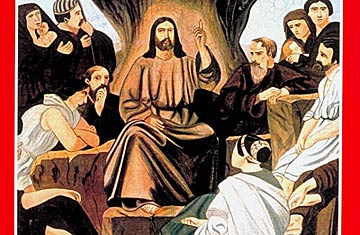
(8 of 11)
For thousands of parishioners — rich, poor and middle class — churchgoing has expanded from a Sunday exercise to a daily involvement. That is true for both pastor and laity, with the traditional gap between the two virtually abolished. Churches like Smith's serve for more than worship. They are swiftly evolving into a sort of all-purpose substitute for the extended family, for the kind of togetherness aimed at by country communes. They function as an ethical center where lonely and troubled suburban folk seek consolation and guidance about divorce and drugs, crime and the rise in VD incidence — the bitter fruit of certain kinds of American wealth and freedom gone wrong.
Smith is a Bible teacher, not an old-style hellfire and brimstone evangelist or a psychoanalyst. But he knows the traumas and failures of fragmenting society and family life, and the apocalyptic feeling that today assails many Americans. "There is a sense of impending doom in the world. Ecologists tell us this. So does the military. One sees it every day. The current philosophy in our educational system is despair. It has been concluded that there is no universal base for good. Removing all absolute values has left people floating, pessimistic, helpless. Jesus Christ not only established a code of ethics but he gave us the power to live by it. We are giving people back their sense of direction."
As they have in the past, twin passions lend Evangelicalism both its force and its Amoral ambiguity: apocalyptic fear and the upbeat conviction that society can be rebuilt if men not only know Jesus but act like him in their everyday lives.
Apocalyptic fear tends to lead to a rescue-before-it's-too-late religion. Identifying with Jesus in everyday life has long been regarded as behavior possible only to saints or crackpots. Yet the notion that religion may help to instill better values in the U.S., after the disappointment bred by the failure of secularism and situation ethics, is not confined to clergymen. Illinois Representative John Anderson, chairman of the House Republican Conference and an Evangelical layman, goes so far as to say that American democracy could collapse without a rebirth of the Founding Fathers' belief in the "self-evident moral order in the universe." The accompanying conviction is that the ultimate mission of government is to serve that moral order. Anderson concedes that the "prevailing intellectual climate" is still hostile to the idea of such absolute values.
Yet dissatisfaction with American life and a general decline of faith in science and rationality may be making a religious conception of the world more acceptable than it has been for more than a generation. In the 1940s, recalls Billy Graham, it was "embarrassing to
